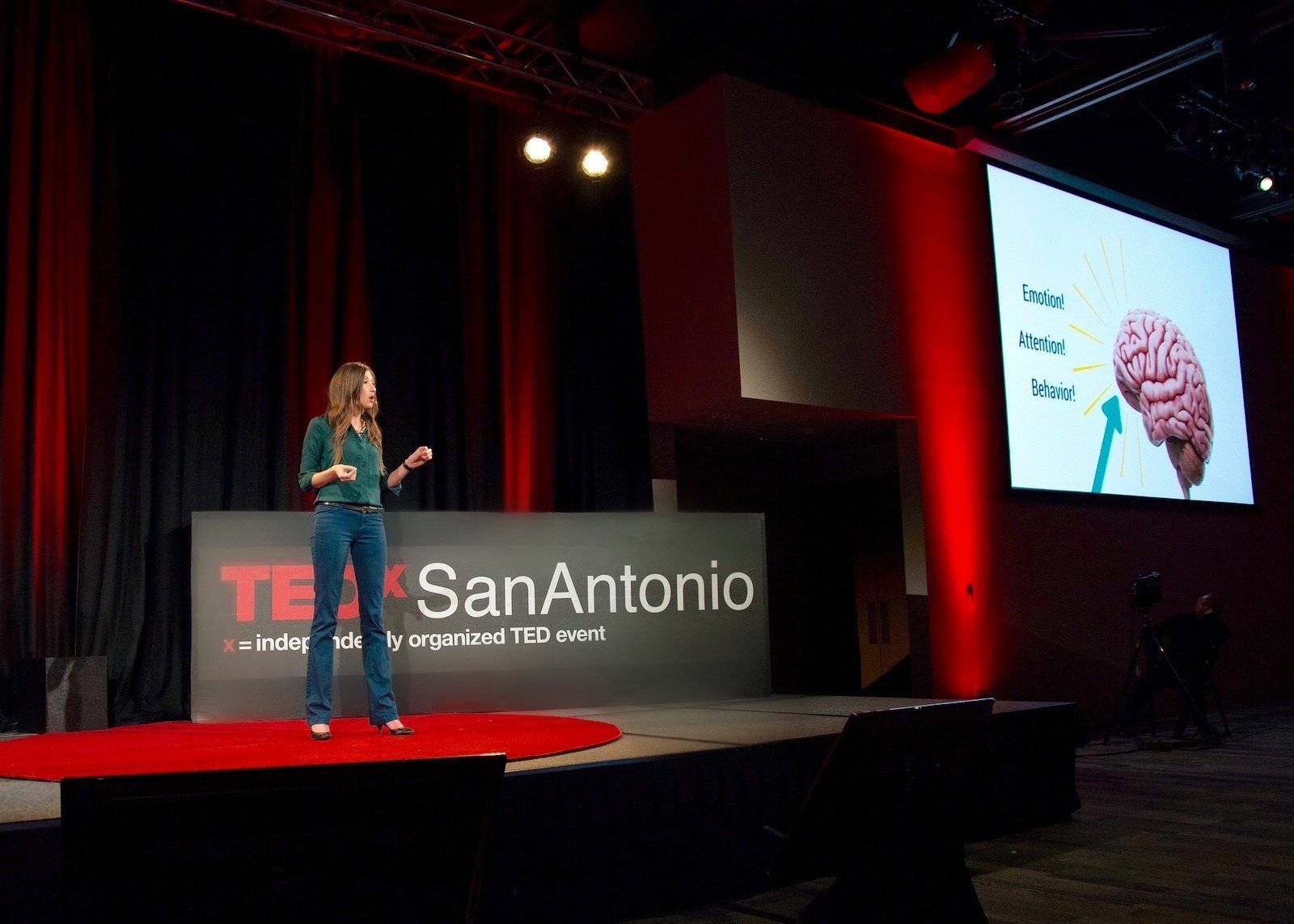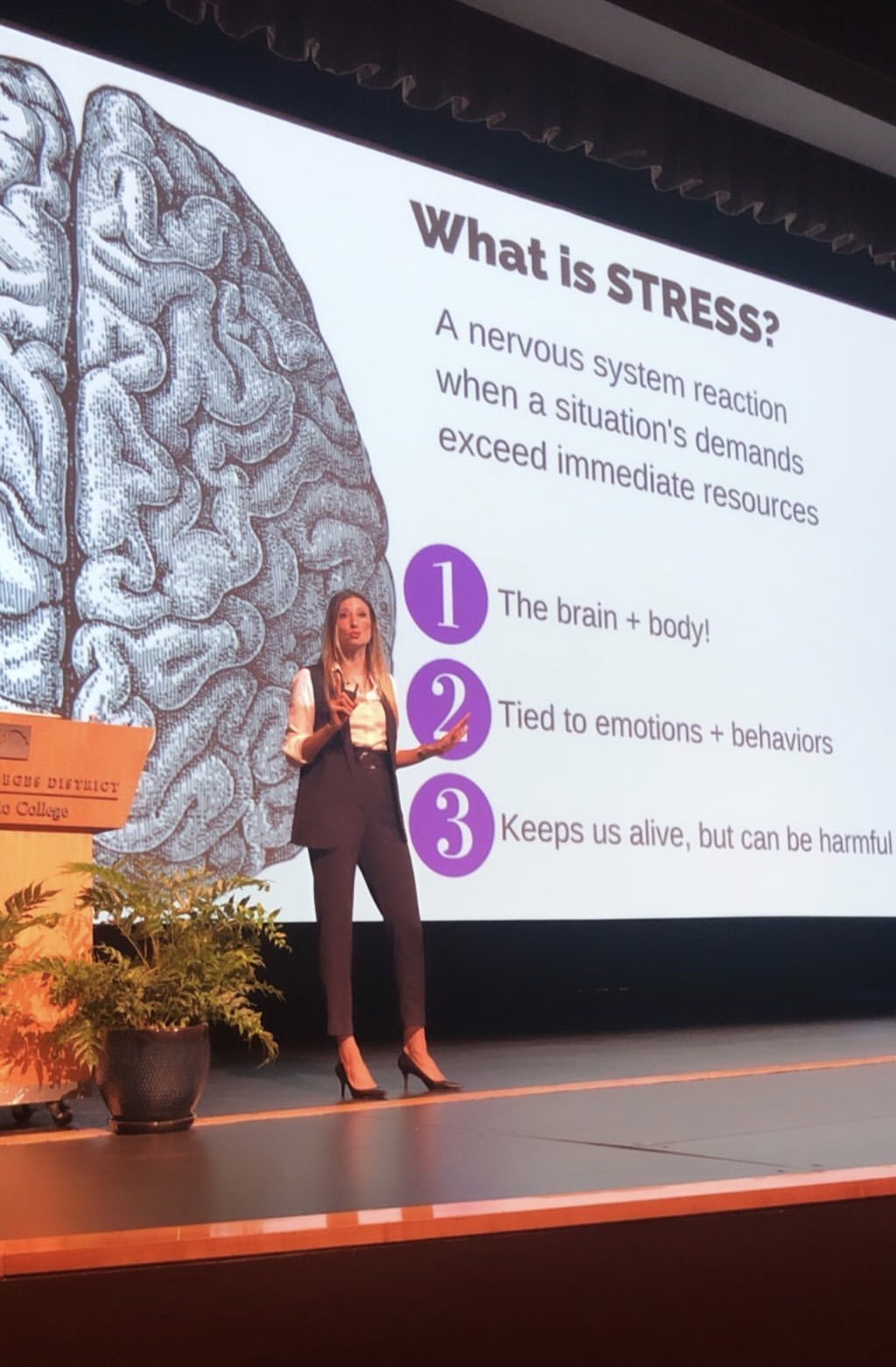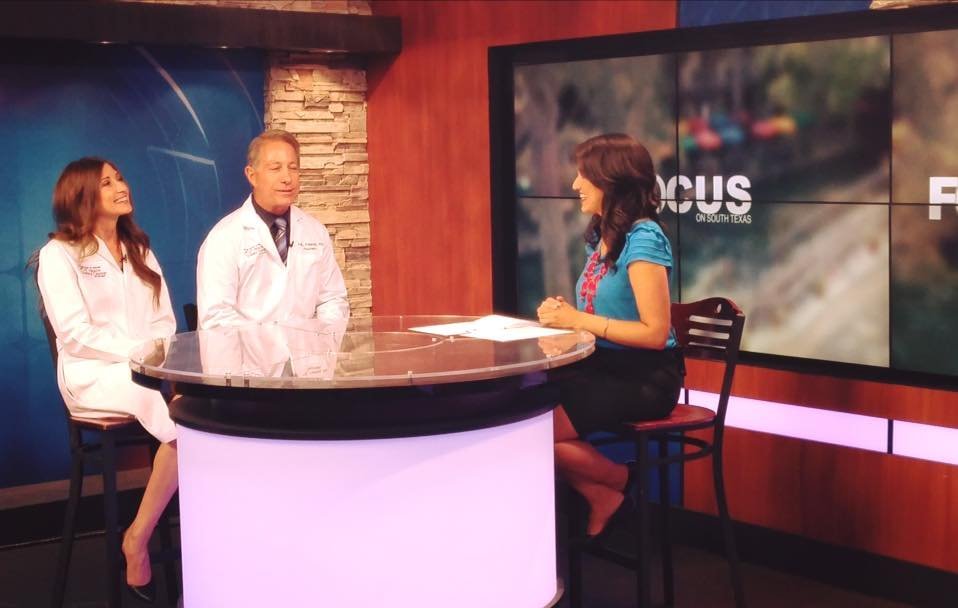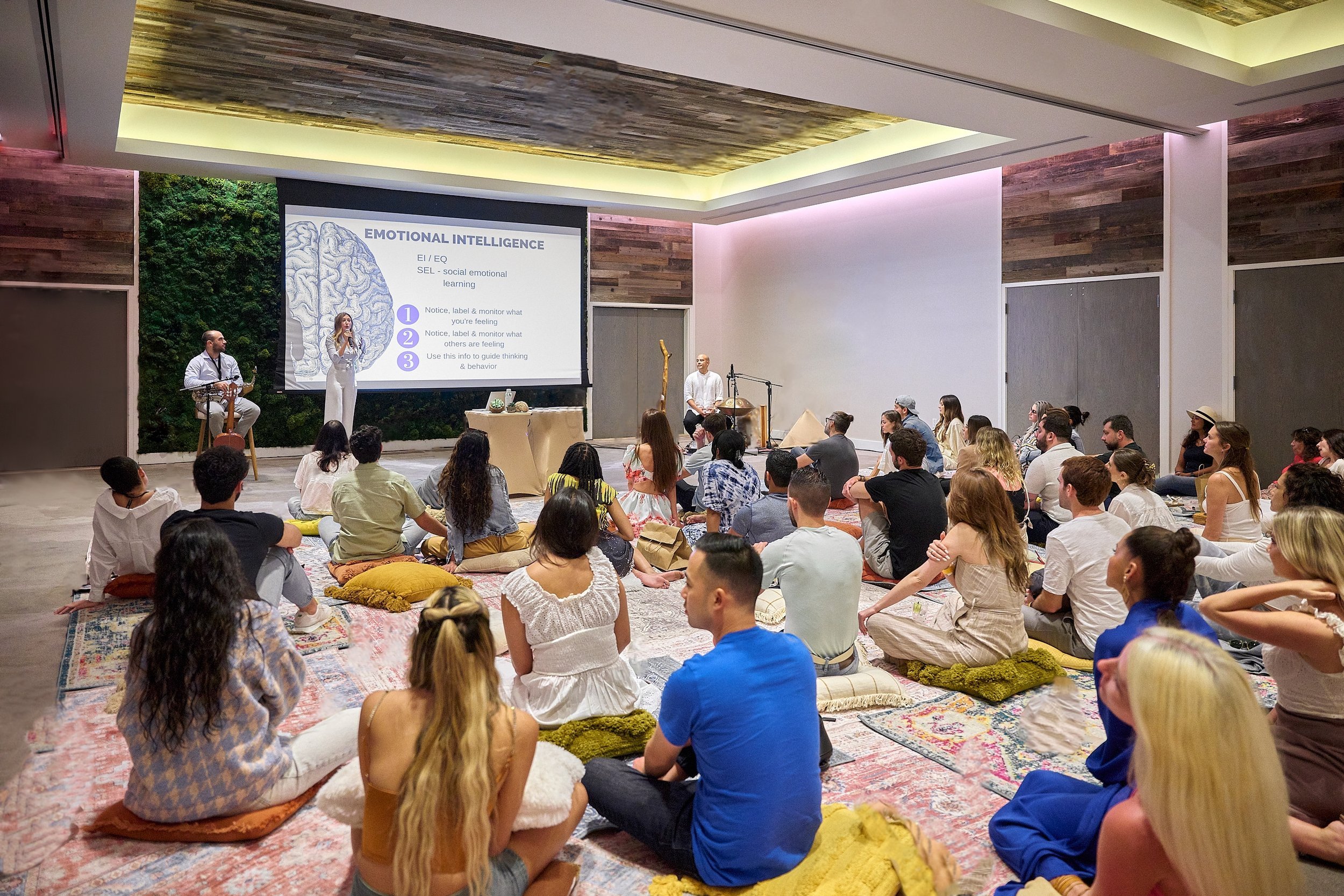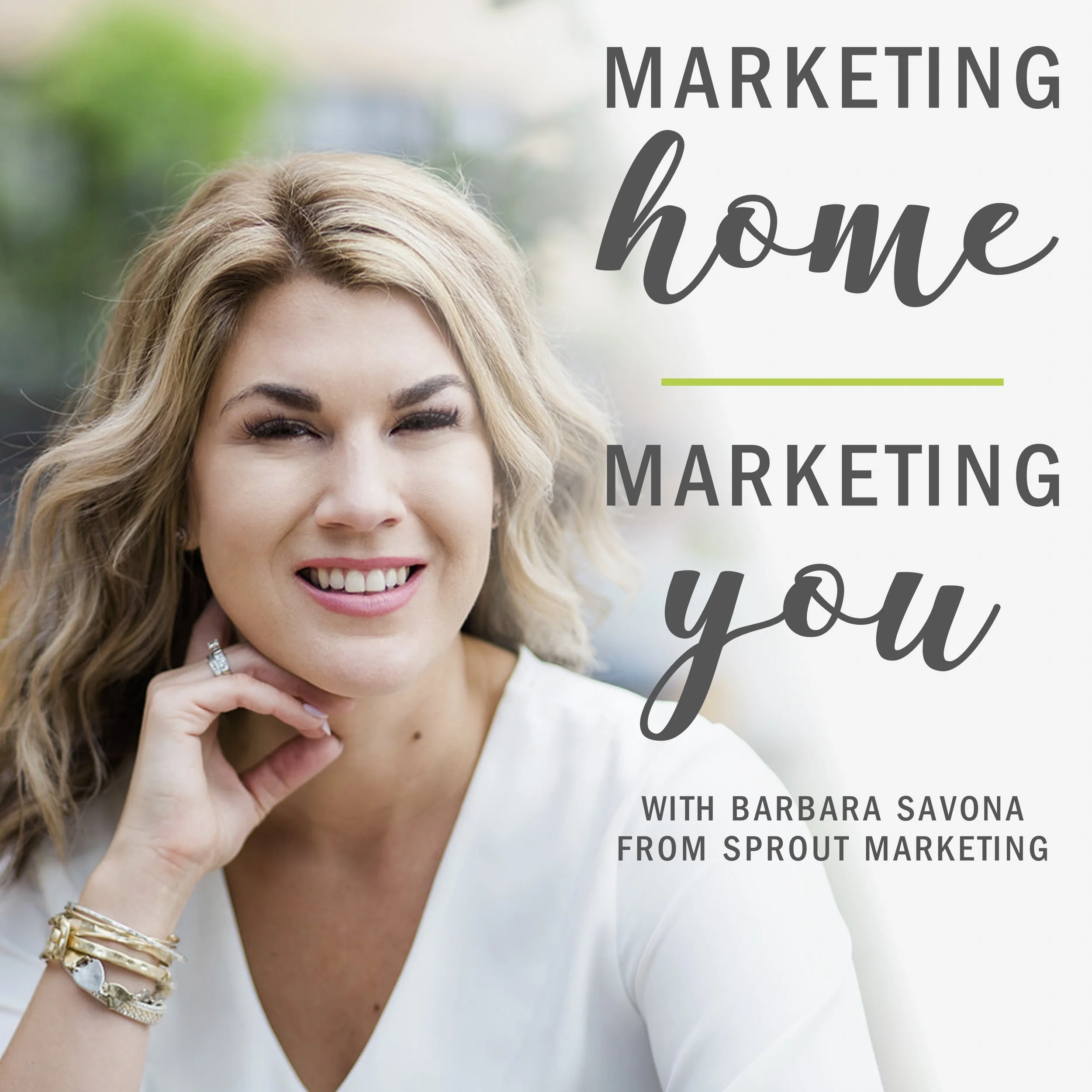#85: Dr. Lindsay Bira, 6 Pillars of Resiliency Every Multifamily Housing Leader Needs
Here’s a glance at this episode…
08:00 >> The Six Domains or Pillars of Resiliency
10:11 >> Vision
14:12 >> Collaborative Relationships
18:31 >> Composure
21:47 >> Reasoning
26:51 >> Tenacity
31:26 >> Health
35:12 >> Put It Into Action
Thank you so much for joining us on this episode of Marketing Home, Marketing You! Today we have a real treat. We have psychologist, Dr. Lindsay Bira, to talk about how we can stay successful and healthy, even in an industry as stressful as ours. The tips and techniques she shares can be put into action pretty quickly and help your high-paced workday and long-term career. I wanted to find out what attributes are needed to support someone that's in a high-performing, constantly-demanding role. This is where resiliency comes in.
Known as The Brain Expert, Dr. Bira has been featured by Nature, Science, Women’s Health Magazine, NPR, Forbes, and more for her work. She makes the neuroscience of mental health engaging and actionable through 1:1 sessions, speaking, and media appearances. In her private practice and as an adjunct medical professor, she specializes in stress, trauma, PTSD, anxiety, wellness, and more. In all her initiatives, she focuses on elevating the human experience to deepen purpose, create balance, and support success.
Dr. Bira will be sharing new insights through our Sprout Membership throughout 2023. If you're interested in getting the complete series over 2023, become a member here. If you're not part of our free community, go to trysproutfree.com.
So listen in or read below for Dr. Lindsay Bira’s six domains, or pillars, of resiliency.
Six Domains or Pillars of Resiliency
The measure that I use is called the “PR Six,” and it's the predictive resiliency six scale. I've really used this and leaned into this more, as a part of my practice since I do work with so many high-performing people. And I've also structured my own business as a clinical psychologist. And part of it came from my own life experience to align with promoting more resiliency. It's been used in quite a bit of research. It's not the oldest measure or the most research-supported measure because it is new. However, it's the most comprehensive measure of resiliency, and it has six domains that we break down. And these six domains are what we can consistently work on and build into our life so that we have that buffer zone.
This year I launched Ocean Oriented™, which is an immersive resiliency retreat expedition for leaders that I hold at sea on a catamaran. And we basically fold the neuroscience of resiliency into ocean adventure with free diving, spearfishing, ocean-to-table chef, the whole thing. It's a four-day immersive experience, that helps leaders be better leaders with their teams or teams be better teams. I use the PR Six as a guide before the expedition, after the expedition, and three months after we take another one. Throughout everything we do, all these ocean adventures, we're building in these concepts of resiliency to really reinforce it and practice it. I chose the PR Six because it has these six domains and it’s also based on neurobiology, or how the brain works. This is neuroscience and this is why these newer measures to me, are a more representative picture of resiliency. So let me walk you through these six domains.
Vision
Number one, and I really want to drive this home, the most important domain of resiliency is vision. This means having a sense of purpose and meaning, alignment and priorities that we have set so that we can view them, and having goals that naturally motivate us. This is the most important stuff. So just having a vision, in a personal relationship, in a professional role for a goal for the team, or some type of advancement you're trying to get to with your company. That vision piece is the most important because we can't see it, we can't even literally walk toward it.
This is also based on how the brain learns as well. We know that as we're getting older, we can't possibly understand a concept until we have a word for it and can define it and look at it. Now we have control over it. And it's really great that we live now in these days because mental health terms are floating all around the internet. There are Instagram accounts that are really defining the human experience. And once we have that defined, we can see it. We can have a vision, we understand what to do. This is why being able to see something is so, so, so important.
Especially when it comes to our daily lives, a vision for our day, our week, our month, or year in terms of our company and our personal lives is extremely important. And all the research supports that. The biggest predictor of resiliency is having a strong vision, and that will carry you through anything. But it's not like a vision magically happens to us, we have to create that vision. We have to look at what's in front of us, and really ask ourselves about which goals hit home and why we're even doing that. That can create a sense of vision and that moves us forward.
When you have a clear vision, you're constantly checking back on your actions to say, “Are my actions aligning with this vision?” And that leads you to then either push through when things are hard or pull back and reevaluate. And that's where that alignment piece comes in. So we have this purpose and meaning. So it's like, “Okay, why am I doing this and why am I waking up every day?” Then we have alignment and priorities. This is like, “Okay, my actions are in line with my goals, and here's what's important and I'm actioning them.” I’m immediately moving toward them. I can look at my own behaviors and say, “Yes, I feel aligned.”
For example, I struggle with my own social media and putting things on the interwebs. I have all of this content from Ocean Oriented that I struggle with finding the right person to help me or find the time to put it up there myself. And part of that, when I really step back and think about the resiliency piece, it's that I lack a vision sometimes about exactly what I want it to come off as or, it's not my training area. So it's with that, that I've really realized if I can sit down and create the feel or create the brand, now suddenly I have a vision and that helps me move forward with it.
Collaborative Relationships
The second most important is collaboration. This is our relationships with other people, good relationships with other people. This is also social confidence and having strong support networks that we can lean on, a real sense of trust in the people around us, and teamwork. So especially if somebody's in a leadership role or a managerial role, this is being able to delegate to your team and trust that they're going to do the work. It’s being able to lean on different people in your life. And it’s being able, from a personal perspective, to be vulnerable enough to share parts of your inner experience with people in your world which deepens your connections and increases intimacy which increases good relationships, support networks, and all of that. So a sense of collaboration and being able to lean into other people is very important.
Because of the recent pandemic, teams are fragmented. In the office dynamic, people are getting paranoid a little bit. Like when you haven't seen somebody in six months or longer and they just shoot off an email with no greeting or no sign-off and it just says, need this thing done tomorrow. It feels cold, and anybody is going to get the sense that it was a little harsh. Even though it might not have been harsh. They might have been doing it with a smile on their face saying, “Oh I love this person I’m sending this email to because I know they'll get it done.” But we don't get that. So we're really missing some of that in-person exposure and taking the time to really put in those greetings and signoffs that protect and build relationships.
For instance, using emojis. When we weren't the generation that started with the emojis, it feels a little bit weird and cheesy, almost overly dramatic. But this is an example of how we have to adapt in order to keep cohesion. We have to adapt to the new norms of communication. The journal, American Medical Association, or JAMA, just came out with a study that looked at what has happened because of the pandemic. We're seeing a lot more mental health symptoms and a lot more fragmentation in social connections. However, there's less stigma around mental health and talking about difficulties than there ever has been before.
We're struggling more, but we're also talking more about it. And for me, I view that as a gift. We will take more struggle if it allows us to really address concerns, and develop language and culture that allows us to grow together and be better humans. From the collaboration domain side, yes, we're more fragmented, we need to account for some of the things that we've lost, the relationships that we've lost in the face of Covid, but we can also have these conversations with our teams better asking what they need. This makes resilient teams. Two things can exist together at the same time that almost seem conflicting, but they're not. Struggle can mean growth and that's awesome.
Composure
Composure and reasoning actually go hand in hand because in order to access our reasoning brain, which is our frontal lobe, our executive functioning cortex, we have to calm down our limbic system. If our limbic system is fired up because of our environment or previous training and experiences, it's basically impossible to access our really good reasoning brain. Our first domains were vision, then collaboration, and now we're on composure and reasoning.
When we look at these next two domains, composure comes first because this is basically about emotional awareness. Maybe I noticed that I am super defensive right now or, I noticed that I really don't like talking to this person or whatever it is. Emotional awareness is key to being able to start to regulate our emotions. Stress management is another one. All of these little domains underneath this domain do come with our own little tools, but we need to figure out how we manage our stress on a daily basis so that we're entering into the office or virtual office, not carrying stress that's going to make us more reactive and less tolerant. Being able to stay calm and in control, literally no matter what happens, and being able to tap into mindfulness. This is basically the radical acceptance and the soft interest with the experience at hand.
As an example of this, a few weeks ago I was getting ready to go on my Ocean Oriented expedition. I had all my bags stacked, and on the very top of the bag wheeler, I put my backpack, which had my laptop, my GoPros, my drone, and some other electronics in it. All the most expensive stuff, and I'm protecting everything in this stack. I'm on the seventh floor, and when I go in to say bye to my dog, I hear this crash and boom. My backpack had fallen over the balcony six stories to the very bottom. All my electronics are basically gone. I had this moment where I felt my emotional brain start to really ramp up. How could this happen? I was mad at myself, I was mad at the situation. So I really had to tap into my emotional awareness about how strong my nervous system was reacting, and my ability to manage my stress, and stay calm and in control. I couldn't have this carried with me for the rest of the trip. I was responsible for creating experiences for so many people. So by staying calm and looking at it almost with a sense of humor, I was able to tap into my reasoning, which was the planning and prevention (our fourth domain).
Reasoning
Reasoning is planning and prevention adaptation. Basically, I said, “Okay, this is my reality. What do I do next? How do I still make my goals work?” Introspection or, being able to reflect on ourselves and stay connected to ourselves even in the face of some hardship, and resourcefulness, which we know in research, resourcefulness relates to creativity and being creative to solve a problem is more rewarding than being able to solve the problem easily. I had to think about whose laptop can I ask to use, which is kind of annoying but also increases some social connections. There are all these benefits that come from a large stressor that we don't immediately see, especially if we aren't able to tap into that third domain, which is composure. So if I was just wrapped up in what had happened and how I lost everything and now I can't do this, then I was not going to be able to access reasoning and creativity and really get around the problem and look at it with a sense of humor.
Composure and reasoning work together it’s almost like you can't have one without the other, and that's a key thing. What we're trying to do and what we know makes good leaders and managers, is being able to model some real humanity and how we respond to problems. If we think about a leader, a leader is who we look to in times of stress who say, “This is going to be okay and we can figure out a way around it.” They maintain a ton of composure so they're not reacting, and then that allows them to access their reasoning and get creative around a problem. Good leaders do that. They say, “There is no problem that can hold us back. We will find a way.” That motivates teams and inspires people. I had that experience too when I decided to be open about what had happened to everybody. They told me I was handling this very well and I said, “Well you know what, what else can I do? Really that's gonna be effective?”
So, we use that as a way to reinforce the resiliency model too. All of these domains go together but these two, composure and reasoning, really come together. If we notice ourselves being upset about something, then that's our cue. Once we have the definition, now we have control over it. We have the cue to say, “I need to compose myself. What does this mean? How do I get composure? Okay, I'm gonna go do cardio.” Or, “I'm going to go make sure I schedule some social time.” or, “I'm going to take a nap because that always makes me feel better.” That helps us compose and helps us access reasoning, and that's really what we're trying to get to. I always say “Isn't it interesting how strong this emotion is in me right now?” And that's my first cue that my nervous system is doing something. Sometimes I also feel like the water is up to here and I cannot keep my head up. My emails are piling up or, fear what other people will think or whatever it is, that's the stress piece. That's key to stepping into composure and regulating your nervous system. So then you could tap into reasoning and start to say things like, “What can I do within these next 15 minutes?” Or, “How can I schedule some time today to make sure I'm focusing on that thing?” Or, what is really going to happen?”
Tenacity
When I first looked at this scale I thought that was such an interesting word. I needed to look up the definition because it's not something that we hear all the time, but it's actually extremely important. Tenacity is about a mindset mixed with action. It’s all about persistence and maintaining motivation no matter what. Having a realistic sense of optimism, which I personally relate more to our existential viewpoint of what is the purpose of life and what is the purpose of suffering. But, all in sum, it's our ability to bounce back quickly no matter what happens. Literally, no matter what happens in our life, being able to say, “Why is this happening? Well, because I'm human, I’m alive, and I have a high-paced job, so of course, I'm experiencing this. So, what can I do next?”
“Tenacity... it’s our ability to bounce back quickly no matter what happens. Literally, no matter what happens in our life, being able to say, “Why is this happening? Well, because I’m human, I’m alive, and I have a high-paced job, so of course, I’m experiencing this. So, what can I do next?” ”
There's always something that I can do next and I'm going to reorient to that. I'm going to maintain my motivation and my persistence no matter what is happening because there's always a way and that realistic sense of optimism. For me, I like to talk about things in existential terms: What is the point? Are we not supposed to not suffer, that makes us hate suffering. This should never happen and if I would've just done better I could've prevented this or other people could've prevented this. But that just makes us angry and stuck. When I think about realistic optimism, I really think, basically in life shit is supposed to hit the fan every once in a while when we don't expect it or when we could have prevented it in some way, but we're human.
Realistic optimism is about saying, “No, this kind of stuff is supposed to happen. If I'm human and alive and choosing this role, this is exactly what I'm supposed to be experiencing. So let me feel it. Let me compose, let me reason, and maintain my sense of tenacity that's gonna keep me moving forward no matter what.” There's a quote, I think, from Albert Einstein and I'll finish the tenacity with that. People were interviewing him and asking how it feels to be the most intelligent person on earth, and he responded, “I really don't believe I'm the most intelligent one. I'm just more persistent than anybody I've ever seen. Nothing worked out for me. I failed school and I was the weirdo and none of my solutions worked. I kept trying to think of something and it was always a dead end, but I kept going because I believed in it and it was important to me. Persistence was key.” That’s tenacity, and when we look at leaders and managers, that sense of tenacity comes along with good leadership and it brings a huge ability to lead teams and keep your own well-being high.
I fully believe that our resiliency relates to, and our job is to constantly redefine ourselves, our identity, and what we expect out of life. Because you think life is going to look a certain way and then suddenly it looks like something different and our suffering comes from trying to hang on to that old thing. Tenacity and composure, reasoning, and vision, all come together. It is about saying, “No matter what happens, I'm going to pick up and I'm going to pivot. I know there's something else around the corner, I just have to keep putting myself there and making more connections.” And that's collaboration. You can really see how all these domains are very important to keep thinking about and repositioning yourself towards and building. And then when you have that, then resiliency, opportunity, and options are maintaining themselves high.
Health
Health can be defined as good sleep, regular exercise, healthy nutrition, and positive health views. So, really look at health as an important part of your life. Sometimes we'll talk about health in terms of exercise and nutrition, but science shows that figuring out how to get your sleep consistent is very important, especially for how our brain cells flush themselves and all of our cells grow. We need those levels of health in order to even be able to do good reasoning or to be able to maintain that tenacious mindset. So health is a pillar with all of them.
You can't push a hundred miles an hour 24/7 and not affect your health and think you're going to be a great leader. I give little quick hacks for this too. For healthy nutrition, I highly recommend that any busy person sign up for a quality meal delivery. Paleo can be really good, as it's decreasing some grains and keeping everything fresh, organic, and healthy delivered to you so you don't have to think about it. You're won’t reach for the easy thing that's bad to put in your body. Make it easy for yourself. Outsource, right?
For exercise, get a personal trainer who will hold you accountable. I pay a personal trainer to keep me accountable and when I look back on the years that I've paid that money for it, I don't regret it because it's actually brought me some major health benefits. Figure out what makes it easy for you to put in.
With sleep, I highly recommend this aura ring, which monitors the quality of your sleep. It's one of the best biometric wearables that we have and it measures so many different things. Oxygen saturation, heart rate, breathing rate, it does sleep architecture. I used to be in sleep science so I was initially skeptical about the sleep science side. But, it is awesome and it starts to make you behaviorally more aware of your own patterns and so you prioritize your sleep more. I highly recommend this for people with any kind of sleep issue or, who just want to be better sleepers.
Many people will hear this and think this is a lot of money, but there's always a way to figure out how to do something a bit more cost-effective. I know people are using the Whoop now or, even something where you're tracking your sleep yourself, there are always options. And this is where we always want to think about the reasoning piece because if it's important enough to you, you will put it in. But if you can put those funds into something, even if it's only three months to give yourself a good foundation, I always highly recommend it.
Put It Into Action
As a review, the six domains of resiliency are: Number one is Vision. Having your purpose and meaning set your alignment, and your priorities and use that to motivate yourself towards goals that are well defined. Set a timer for five minutes and create your vision for the rest of the day, the week, and maybe even the month. If we can do that consistent exercise, we're doing so much for our own resiliency and moving towards our goals. Then we have Collaboration. Good relationships with people in our team are extremely important. Next, we have Composure, the ability to regulate our nervous systems so that we can access the fourth one, which is Reasoning. Fifth we have Tenacity, which is that resilient mindset, persistence, motivation, and realistic optimism. And then coming in last but not least, of course, we have Health, and that's sleep, diet, and exercise.
These six things are free. Even if you don't have a big budget to keep investing in yourself, this is accessible to anyone. I would encourage everybody to do their own research and dig into this stuff on the internet. Figure out how you can create a better sense of some of these things in your own life. How you reorient to it in the face of stress and how you get the best traction. If we're gonna work on something immediately, I would think it should be Vision. Then make sure everything is aligned, your collaboration, building good relationships, and good communication. And then health is something we can put in every day.
Learn more about Ocean Oriented™
Follow Dr. Bira on Instagram.
If you'd like to submit a question or suggestion for an upcoming interview, join our membership at trysproutfree.com, free of charge. You will also get access to our monthly marketing magazine. You can also DM me on Instagram @sproutmarketing or message me on LinkedIn at Barbara S.
I'm giving you this sampler piece of member content because it's so valuable, and I want you to get an inside look at what is included when you become a Sprout member. If you love what you're learning and you want to continue to get tips and techniques from Dr. Bira throughout 2023, make sure to sign up here.



